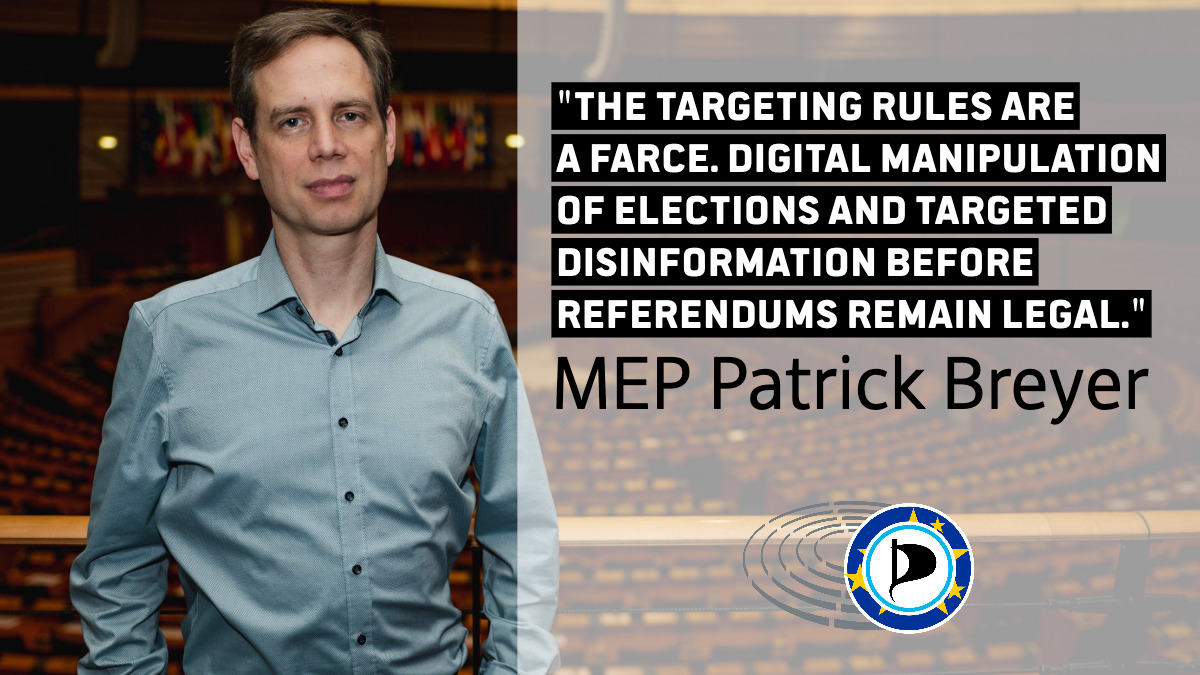Yesterday, the EU Parliament and Council agreed on new rules on transparency and targeting of political advertising. The Parliament was able to secure a publicly accessible library of online political advertising, but targeting political messages based on the individual preferences, weaknesses, situation and personality of every user will remain legal (so-called surveillance advertising).
Patrick Breyer, EU lawmaker and digital freedom fighter for the Pirate Party, who co-negotiated the regulation in the Civil Liberties Committee (LIBE), takes stock:
“The targeting rules are a farce. The digital manipulation of elections in the style of Cambridge Analytica, targeted disinformation before referendums such as Brexit, contradictory election promises to different voter groups – all of this remains legal. Anti-democratic and anti-european movements will benefit most: they can continue to use surveillance advertising to target hate messages and lies at voters who are susceptible to them in order to undermine our democracy. Here, the short-sighted self-interest of those in power and the surveillance capitalist interests of big tech have combined to create a toxic mixture for democracy.”
The agreed targeting rules in detail:
- The existing prohibition in the Digital Services Act of analysing the user’s political opinion, sexual orientation or health for advertising purposes remains in place. In practice, however, political advertising tends to be based on matching interests and other correlations, which remains legal. Even Cambridge Analytica did not analyse the political opinion of users before Trump’s election as US president, but rather their personalities.
- The user consent already required under the General Data Protection Regulation (GDPR) remains a precondition for being allowed to tailor political advertising to the individual situation of the user and profiling their digital lives. Surveillance data from third-parties may not be used. For the first time, Parliament could implement a ban on annoying consent banners if the user rejects personalised political advertising via their browser settings (“do not track”). Parliament was also able to ensure that consent to political surveillance advertising may not be made a precondition for accessing websites (“tracking walls”).
“Every user will be able to decide in favour of or against political surveillance advertising,” explains Breyer. “In the best-case scenario, yesterday’s agreement heralds the beginning of the end of annoying cookie banners and tracking walls. We can build on this foundation in the ePrivacy negotiations and extend these rules to all banners. In the worst case scenario, the new rules will be undermined by suggestively designed consent banners and consent clauses hidden deep in terms and conditions. Letting individual internet users decide on the protection of democratic elections is a dangerous failure of the legislator, for which the EU Commission and EU governments are responsible.”
The new rules will come into force in 2025.


0 comments on “Political advertising: EU won’t ban voter manipulation and microtargeting”